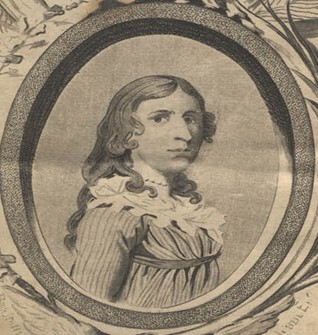
Deborah Sampson, a Revolutionary War heroine, holds a significant place in American history as an extraordinary figure who challenged the societal norms of her time. Born on December 17, 1760, in Plympton, Massachusetts, Sampson defied traditional gender roles by disguising herself as a man and serving as an American soldier during the Revolutionary War. Her courage, determination, and unwavering commitment to the cause make her an enduring symbol of women’s contributions in the military.
At a young age, Sampson displayed a fierce spirit and a desire for adventure that was deemed uncharacteristic for a woman in the 18th century. As tensions grew between the American colonies and Great Britain, she yearned to contribute to the fight for independence. In 1782, she enlisted in the Continental Army under the name Robert Shurtleff, assuming a male identity to evade suspicion.
Who was Deborah Sampson and Why is She a Remarkable Figure in History
Sampson’s disguise was remarkably successful, and she served in the army for over a year without being discovered. She fought in various battles, including the Battle of White Plains and the Battle of Yorktown, where her bravery and skills as a soldier became evident. Despite the constant danger she faced on the battlefield, Sampson never wavered in her commitment to the cause of freedom.
However, serving as a soldier during the Revolutionary War was no easy feat, especially for a woman. Sampson endured harsh conditions, including limited rations, exposure to extreme weather, and the constant threat of injury or death. In one instance, she received a bullet wound to her thigh but managed to remove it herself to avoid being exposed as a woman. Her resilience and determination were unmatched, inspiring her fellow soldiers and earning her the respect of her comrades.
In addition to her military prowess, Sampson’s story resonates with generations of women because of her unwavering determination to fight for her beliefs and challenge gender stereotypes. By assuming a male identity, she defied societal expectations that women were to remain within the confines of domesticity. Sampson’s actions demonstrated that women were capable of much more than their prescribed roles, and her example paved the way for future generations of women in the military.
Sampson’s remarkable story did not end with her service in the army. After being honorably discharged in 1783, she returned to civilian life and embarked on a career as a lecturer. She recounted her experiences in the military, captivating audiences and shedding light on the challenges faced by women who defied societal norms. Sampson’s lectures became a platform for advocating for women’s rights and promoting gender equality.
Deborah Sampson’s legacy as a revolutionary war heroine and an advocate for women’s rights continues to inspire people today. Her daring decision to disguise herself as a man and serve as an American soldier during a time when women’s roles were restricted was a groundbreaking act of defiance. She shattered gender barriers and proved that women could contribute significantly to the fight for independence. Sampson’s story is a testament to the strength, resilience, and indomitable spirit of women throughout history.
As society progresses, it is essential to remember the remarkable figures like Deborah Sampson, who paved the way for gender equality and challenged societal expectations. Sampson’s extraordinary courage and determination have left an indelible mark on history, reminding us that anyone, regardless of gender, can rise above the constraints imposed by society and make a significant impact. Her legacy serves as a beacon of inspiration for women in the military, reminding them that they too can be trailblazers and shatter the glass ceiling. Deborah Sampson’s remarkable story serves as a constant reminder that the strength of character knows no bounds and that women’s contributions are an integral part of history.